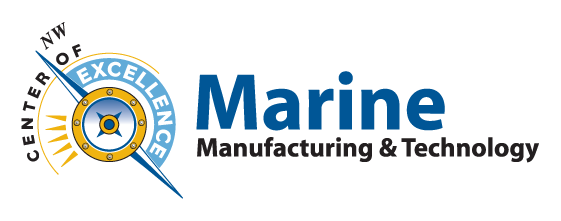Leading with resilience: Reflections After Interviewing Neepaporn Boungjaktha
By Aqsa Khan, Sea Potential, LLC
Neepaporn Boungjaktha, Managing Director of Economic Development at the Port of Seattle. Photo courtesy Sea Potential.
After interviewing Neepaporn Boungjaktha, I had to sit still for a while.
It wasn’t just admiration I was feeling—it was something deeper. A quiet unraveling. Her story brought up memories of my own journey, the ones I rarely take the time to reflect back on. Stories of sacrifice, of navigating systems without a map, of trying to hold grace and grit in the same hand.
She calls it “being a fist in a white glove.”
That phrase hasn’t left me. It landed in my chest like a koan—simple, elegant, powerful. What does it mean to lead without shrinking, to take up space without apology, but to do so with grace? As women of color, especially those raised in first generation immigrant households, we’re taught to be agreeable, non-confrontational, “thankful” to be at the table. Neepaporn rewrites that. She doesn’t demand power loudly—but she doesn’t hand it away quietly either.
What struck me most wasn’t just what she’s accomplished—it was how deeply she remembers where she started. The long bus rides from Tacoma to Seattle. The choice to live at home to avoid debt. The lack of a network. The moments of uncertainty. It was all so familiar. I, too, have made those choices. Quietly. Strategically. Often invisibly. And like her, I’ve wondered if those sacrifices would ever be seen, much less valued.
Her journey reminded me that sometimes the most radical thing we can do is name our beginnings out loud—without shame.
And then there was the part about inviting young people to the table, even if they don’t have anything to say yet. That hit me hard. I think about how many rooms I’ve sat in where I wasn’t sure if I belonged, where I stayed quiet because I thought I had to “earn” the right to speak. Neepaporn reminded me that presence is participation. That being there is the first step to believing you deserve to be there.
I also found myself thinking about economic development differently. I’ve often seen it as purely profit-driven, disconnected from the communities I care about. But the way she spoke about storytelling as a tool for economic inclusion? That felt like an invitation. A reminder that narrative itself is infrastructure. That the stories we tell about — who belongs, who leads, who builds—are just as powerful as any policy.
If I’m honest, this interview also made me realize how much internalized hustle I’m still unpacking. Neepaporn’s story is full of motion, of doing and building, but she also holds a grounded stillness. She’s not rushing to prove herself anymore. She knows who she is. That’s the part I’m still learning. That’s the part I want to carry forward.
So what do I take with me from this conversation?
● That leadership doesn’t require noise—it requires clarity.
● That our beginnings are not a burden to overcome, but a foundation to build from.
● That we must invite others to the table before they’re “ready.”
● And that grace and power are not opposites—they are siblings.
This reflection isn’t a neat bow tied around a success story. It’s a love letter to process, to presence, and to the women who quietly remake systems by simply refusing to be small.
Thank you, Neepaporn, for showing me what that looks like to create real impact.
Blog: Fist in a white glove: A Journey of Resilience and Empowerment - Sea Potential


